Short Days,
Long Shadows This book is dedicated to Mikhail Gorbachev,who issued the Russian Convoys Medal to those British seamenwhose service their own government had not then seen fit to honour. Short Days,
Long Shadows Sheenagh Pugh  Seren is the book imprint of Poetry Wales Press Ltd. 57 Nolton Street, Bridgend,Wales, CF31 3AE www.serenbooks.com facebook.com/SerenBooks Twitter: The right of Sheenagh Pugh to be identified as the author of this work has been asserted in accordance with the Copyright, Designs and Patents Act, 1988. Sheenagh Pugh 2014 ISBN: 978-1-78172-156-8 e-book: 978-1-78172-157-5 Kindle: 978-1-78172-158-2 A CIP record for this title is available from the British Library. All rights reserved. No part of this publication may be reproduced, stored in a retrieval system, or transmitted at any time or by any means, electronic, mechanical, photocopying, recording or otherwise without the prior permission of the copyright holder. The publisher acknowledges the financial assistance of the Welsh Books Council.
Seren is the book imprint of Poetry Wales Press Ltd. 57 Nolton Street, Bridgend,Wales, CF31 3AE www.serenbooks.com facebook.com/SerenBooks Twitter: The right of Sheenagh Pugh to be identified as the author of this work has been asserted in accordance with the Copyright, Designs and Patents Act, 1988. Sheenagh Pugh 2014 ISBN: 978-1-78172-156-8 e-book: 978-1-78172-157-5 Kindle: 978-1-78172-158-2 A CIP record for this title is available from the British Library. All rights reserved. No part of this publication may be reproduced, stored in a retrieval system, or transmitted at any time or by any means, electronic, mechanical, photocopying, recording or otherwise without the prior permission of the copyright holder. The publisher acknowledges the financial assistance of the Welsh Books Council.
Authors website: http://sheenagh.webs.com/ Cover photograph by Michael Burns Printed in Bembo by Bell & Bain Ltd, Glasgow Extremophile Two miles below the light, bacteria live without sun, thrive on sulphur in a cave of radioactive rock, and, blind in the night of the ocean floor, molluscs that feed only on wood wait for wrecks.White tubeworms heap in snowdrifts around hydrothermal vents, at home in scalding heat. Lichens encroach on Antarctic valleys where no rain ever fell. There is nowhere life cannot take hold, nowhere so salt, so cold, so acid, but some chancer will be there, flourishing on bare stone, getting by, gleaning a sparse living from marine snow, scavenging light from translucent quartz, as if lack and hardship could do nothing but quicken it, this urge to cling on in the cracks of the world, or as if this world itself, so various, so not to be spared as it is, were the impetus never to leave it. Come and Go He has chosen, far nearer the end than the beginning, to live where, every day, he can watch the land come and go, each time gleaming as if it were new made. Sandbars shoulder into the sun, their whereabouts too brief to map, never drying out. Under its pulsing skin the sea echoes sunlight, shadows the clouds, goes undercover in mist.
What it is to be bodiless, boneless, to reshape, to fill with yourself the moulds of coves and bays, take yourself back. He walks mile after mile, blanking aches, stays up late in the blue half-light, resists the pull of sleep while he can, while his sight still serves him, before that jerry-build, his body, can no longer house a spirit still nowhere near done with the world. Staying The ground beneath our feet is shifting, has been on the move for ever. This fissured sea-cliff travelled north from the equator; its heights were once an ocean floor. Ice carves out rock, forests harden to diamond as the stars burn down: there is nothing that is not on a journey, no abode for those who long only to stay.We could be at ease with so little, if it were for always: a moment, a loved place. How modest this aim to go nowhere, this least of wishes, not to change our state.
Walker He is coming from the shore meadow where oystercatchers landed today; they are pairing, nesting, and he moves like the shadow of a gull across the grass, over a grey wall laced with green, honeysuckle buds gleaming. He steps between the blades of daffodils. The woman never sees, firming plants in her garden, as he passes her by, slips in at the door open to let sun and air in on her man, getting some rest, seeing his flowers unfold, watching the resurrection of the world while he waits for his next bout of chemo. 2. His Colours He sports the jesters coat, red and yellow; he is all in a glow of falling leaves, bonfires that throw out splinters of light. His feet crush berries into a blood-splash on the paving-stones.
His colours: slanting suns, clouds briefly ablaze, he comes as a surprise, this flaunting dandy whom we had looked to see in a plain black suit. 3. Gardening White stones shaped like hearts: you can tell they were chosen. In the winter garden they gleam on bare ground. Hooded crows land on the hard seed-beds, frost crazes the buds of a leafless rose. The gardener, indoors, has eyes only for the woman resting more and more, who will not see spring undammed in a blue rush.
Forget-me-nots lie in ambush: the stones are shaped like hearts. 4. Him Again He moves the way light moves: now sudden, racing up a field as sun clears cloud, now unnoticed, leaching from the world until you look up into dark. And he inhabits next doors peat stack, waiting for winter, and the fat sheep ready for the show, and the gap in the window of what was a house and is a shed, and soon will be out of use. The berries that were once white blossom on the brambles belong to him, so they say, and lose all their taste on a certain day, when he comes to harvest what is alive, and ripe, and his own. 5.
The Edges He hangs around the edges where things happen, the shoreline where land is eaten and shells wash up empty. Where countries stop midstream, or at barbed wire and rifle posts. Where walls meet air at windowsills, balconies, parapets. Most often, though, he waits on times borders, the rim where light and dark bleed, become other, the red pen-stroke that is Walker, his mark, the end of days. Days of November 2009 Short days, long shadows: sun rising low skims the hill. Mending, making good, days full of outdoor jobs, folk racing to finish before dark, before winter.
Angled light, always on the edge of leaving. These days when every little thing feels urgent, unmissable, when all you want is to hold on to a lit rack of cirrus, the taste of woodsmoke catching your throat, a sleek seal slipping back under, the farewell of geese, scribbled in black arrows. Walsinghams Men 1. Player-Man Maliverny Catlyn, 11, 1586 He writes this time from the Marshalsea, having contrived to be confined with two priests enchanted by a man so willing to listen. He signs himself 11.There is news to impart only for the ears of his master, touching insurrection. The spymaster frowns slightly.
He knows he must see the fellow. 11 is a find, one of his best, but a disturbing man somehow, so intense. He himself is reckoned puritan, yet for his part he does not bar pleasure, apart from the vicious sort. A Christian should be master of his passions. Pray send them over sea, writes 11, or let them be fined or hanged, but prison them not, for one man in prison draws many to himself and his cause: prison is itself their nursery. Time this agent should depart for the north, reflects the spymaster.
The recusant nobility will see one of their own; 11 is refined in manner, can act the gentleman to admiration. Or any other man: the wonder is, he still has a self left to know. What is he, apart from others, in his heart? Master of appearance, he makes men see what he says is there. He is defined by otherness, like a mask youd find and try on. Yet this is the man who wants theatre banned, torments himself to think how the full benches play a part in emptying pews. 2. 2.
The Royal Purveyor of Poultry Nicholas Berden, alias Thomas Rogers, 1588 Today he managed to get out of the office for once. No holiday, just inspecting some chickens in a garden, a new source of supply. They looked good, fat and white. He bargained the price thriftily down, as became his trust, noting how they gathered, full of trust, round the woman shaking scraps out of her apron. He needs thirty a day for the court. But he counts it no burden: he is a man who sees only the good in his place.
Assessing geese, putting a price on chickens. Some dullness is the price of safety. He tends to mistrust new suppliers, always cautious, but out in the air, heavy with lavender, today he loosened up, chatted. Nothing hidden in her face; she over-valued the goods, but thats normal. Everyone thinks their god the best, their chickens beyond price; he should know. Why else did they trust him so, those careless priests he caught out whispering and conspiring, in the days when he wrote in cipher, when silence was golden and no name but his own was forbidden? They never saw beyond what seemed good to them; could not suppose he might prize some other good.
Next page
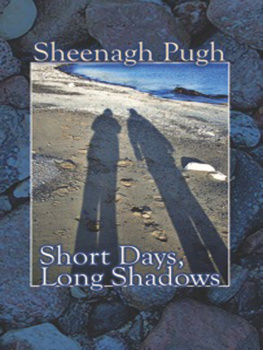



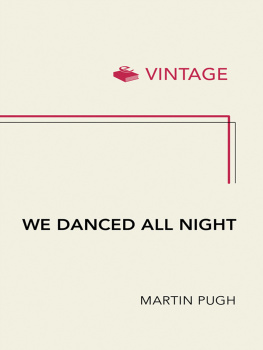
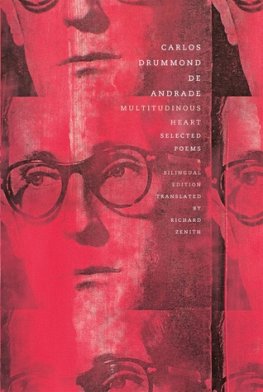


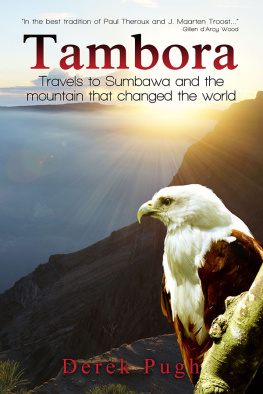

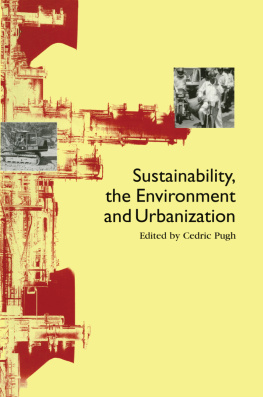
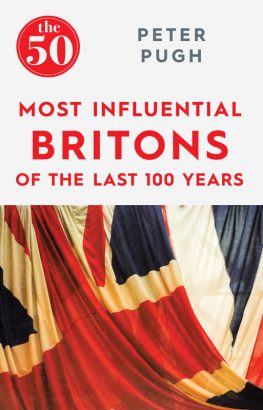



 Seren is the book imprint of Poetry Wales Press Ltd. 57 Nolton Street, Bridgend,Wales, CF31 3AE www.serenbooks.com facebook.com/SerenBooks Twitter: The right of Sheenagh Pugh to be identified as the author of this work has been asserted in accordance with the Copyright, Designs and Patents Act, 1988. Sheenagh Pugh 2014 ISBN: 978-1-78172-156-8 e-book: 978-1-78172-157-5 Kindle: 978-1-78172-158-2 A CIP record for this title is available from the British Library. All rights reserved. No part of this publication may be reproduced, stored in a retrieval system, or transmitted at any time or by any means, electronic, mechanical, photocopying, recording or otherwise without the prior permission of the copyright holder. The publisher acknowledges the financial assistance of the Welsh Books Council.
Seren is the book imprint of Poetry Wales Press Ltd. 57 Nolton Street, Bridgend,Wales, CF31 3AE www.serenbooks.com facebook.com/SerenBooks Twitter: The right of Sheenagh Pugh to be identified as the author of this work has been asserted in accordance with the Copyright, Designs and Patents Act, 1988. Sheenagh Pugh 2014 ISBN: 978-1-78172-156-8 e-book: 978-1-78172-157-5 Kindle: 978-1-78172-158-2 A CIP record for this title is available from the British Library. All rights reserved. No part of this publication may be reproduced, stored in a retrieval system, or transmitted at any time or by any means, electronic, mechanical, photocopying, recording or otherwise without the prior permission of the copyright holder. The publisher acknowledges the financial assistance of the Welsh Books Council.